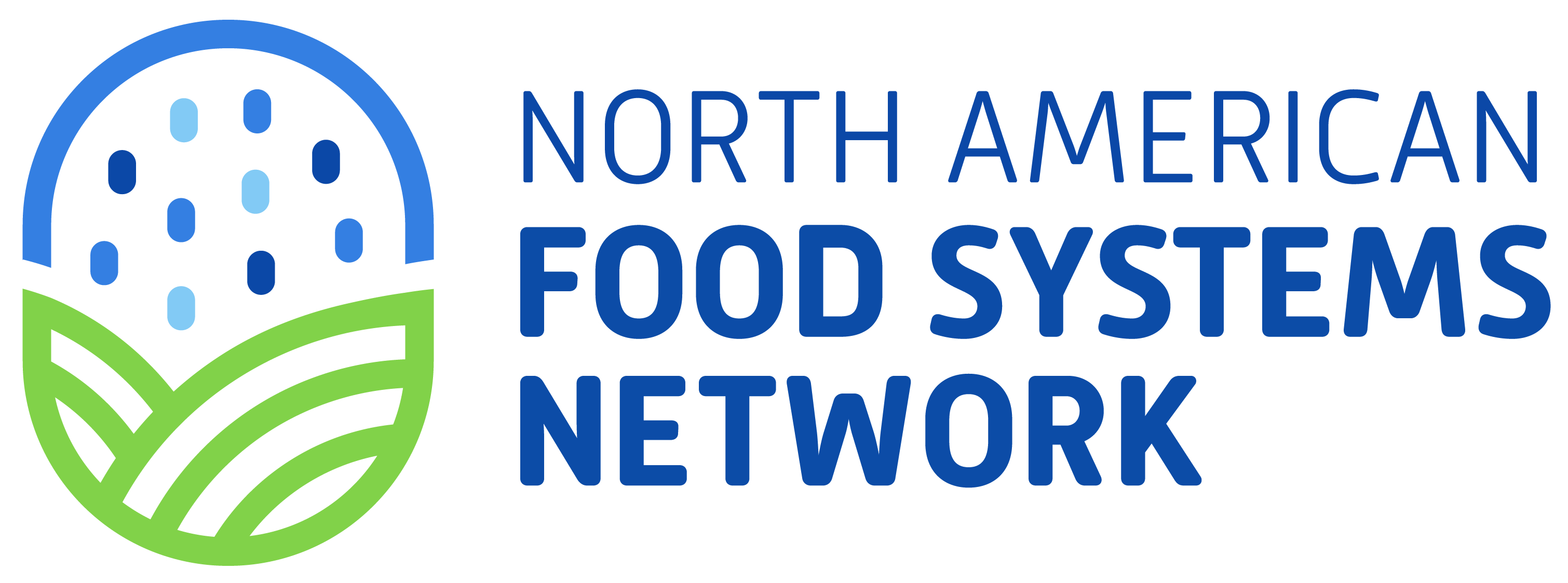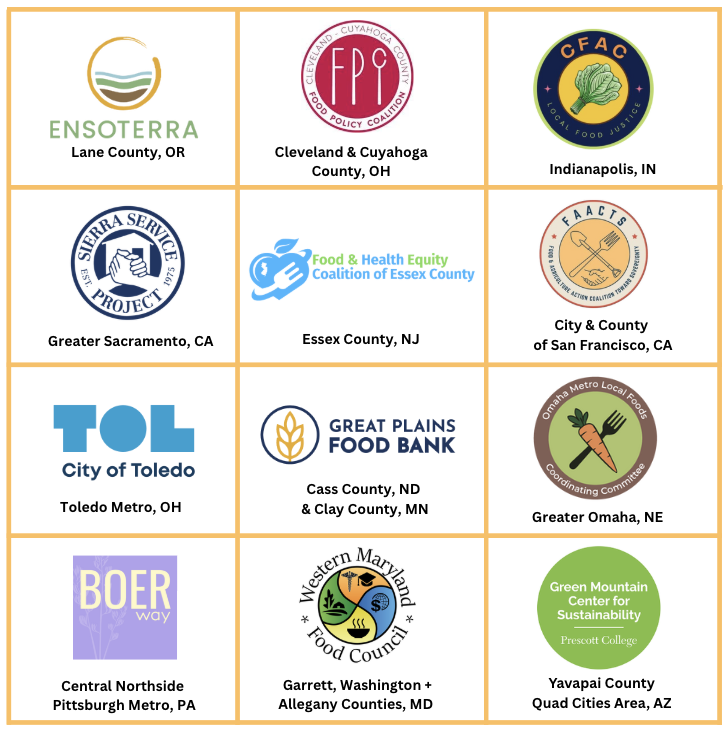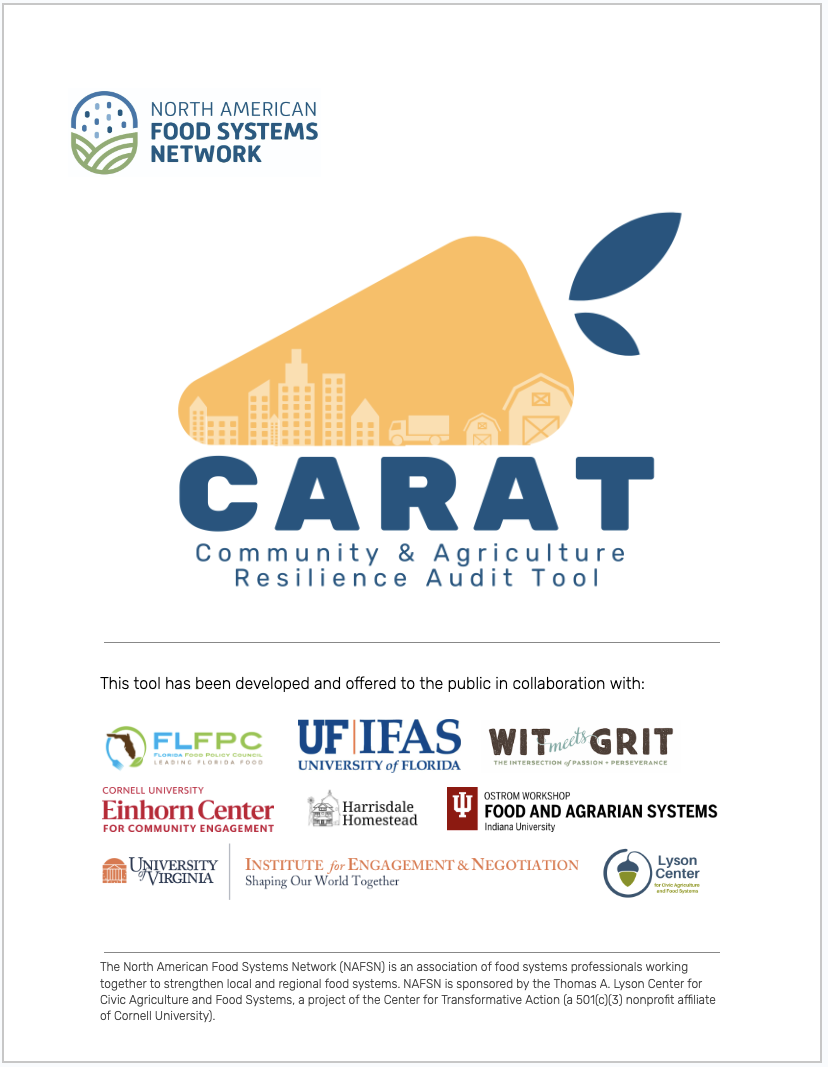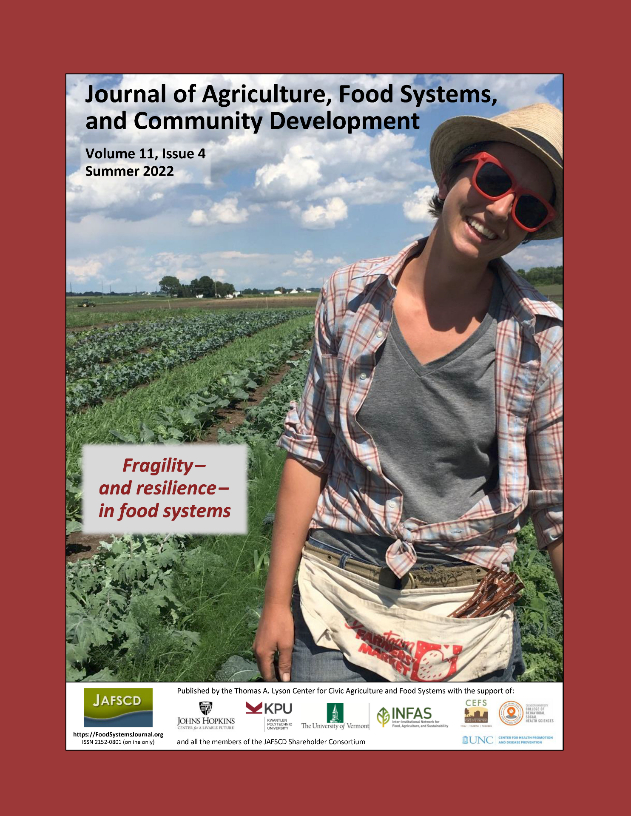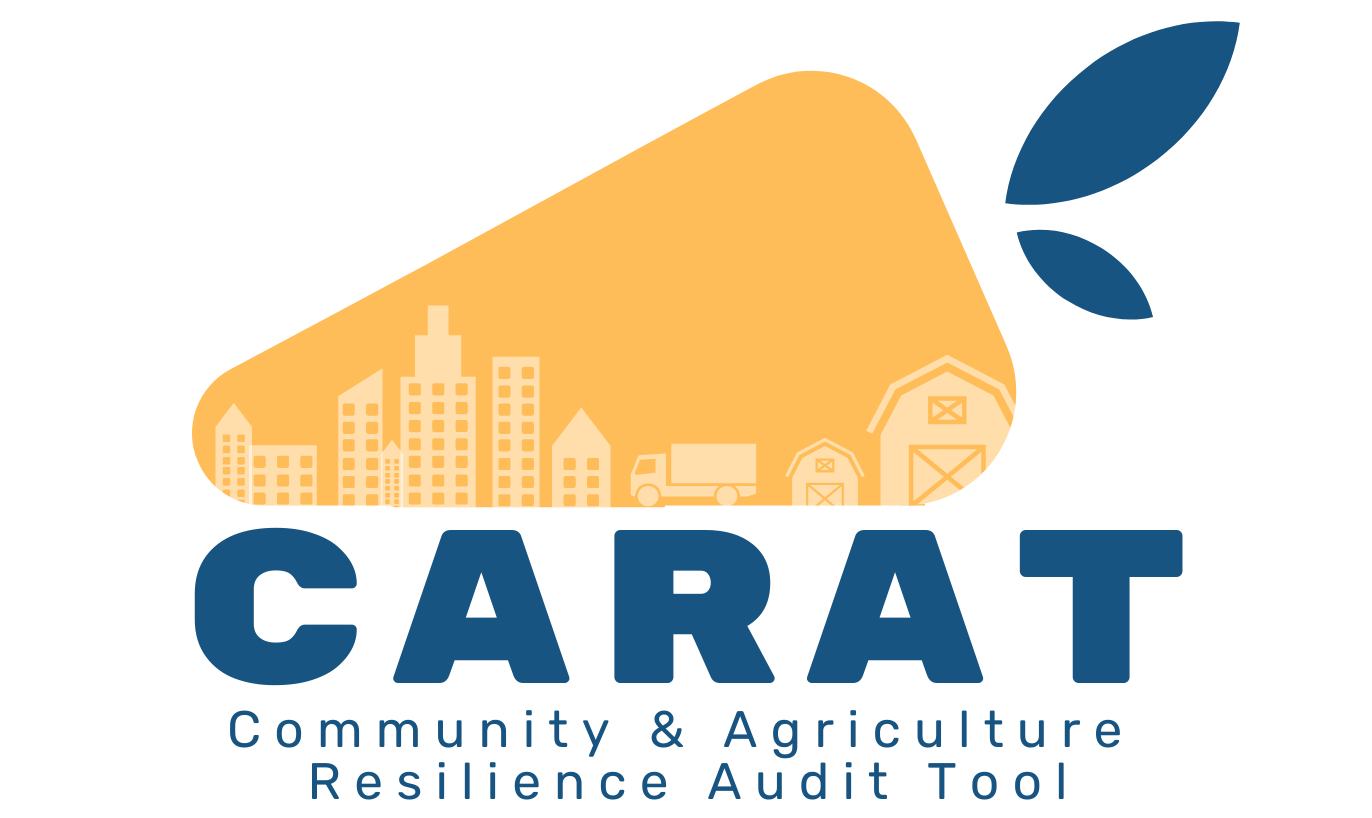
The Community & Agriculture Resilience Audit Tool - CARAT - helps community stakeholders assess how they currently utilize the assets of their local food system to achieve a substantial level of community resilience.
CARAT measures the resources within a food system via 101 indicators to determine possible next steps to increase community resiliency and food sovereignty.
These indicators revolve around seven core themes that address the complex nature of community resiliency. Each requires the attention and participation of a diverse team of stakeholders who work together to provide a holistic perspective of how food systems play an integral role in their community’s resilience.
MEET THE CARAT COHORT 2025
NAFSN is honored to support twelve communities from throughout the US in completing their CARAT assessments this year.
is now available for download.
Thank you to all who helped pilot & improve it during 2024.
Use the CARAT tool on-line at www.carattool.org
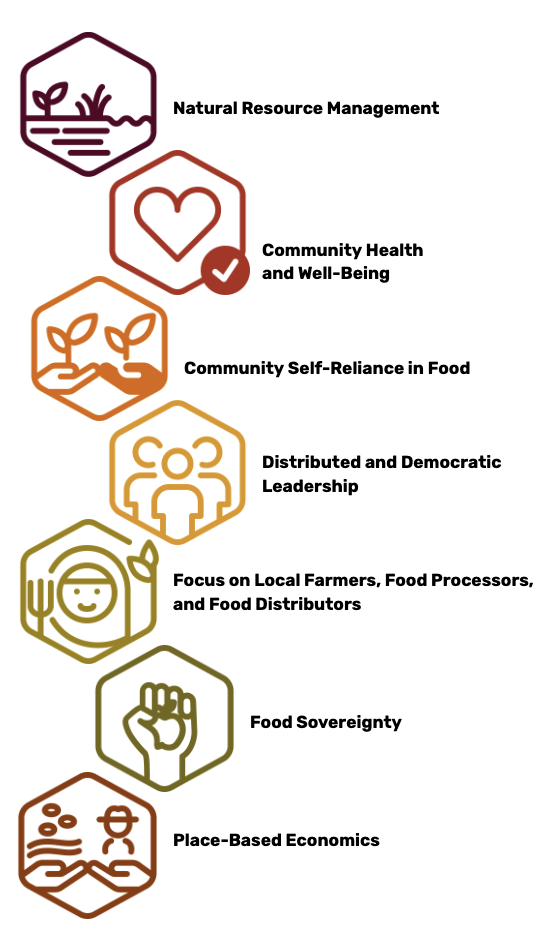
ATTEND A CARAT INFORMATION SESSION *
UPCOMING DATES, REGISTRATION:
ACCESS THE TOOL: CARATTOOL.ORG
Choose this option to download a fillable form that one member of your audit team manages for the group.
This version does not save your data to the CARAT database.
Choose this option to use the online version of CARAT, allowing multiple members of your audit team to contribute by inviting them as collaborators.
This version saves your data to the CARAT database, and generates additional insights from the CARAT database when submitted.
USING CARAT AS A COMMUNITY
CARAT can be used to establish a baseline, set priorities, and measure change over time.
CARAT can be matched with technical support to guide a community through discovery, regardless of entry point or level of expertise.
CARAT results in a summary that can be easily shared to convey complex discoveries to other community stakeholders & supporters.
CARAT adopts a social-ecological systems perspective on the interdependency of humans and the environment.
FROM THE CARAT WORKING GROUP
As food system leaders representing a wide range of disciplines, we have observed that the strengths of a community's food system are major contributors to the development and maintenance of community resilience.
Resilience is essential for maintaining the health and safety of a community. Our definition of resilience borrows from the Rand Corporation:
Resilience is a measure of the sustained ability of a community to utilize available resources to respond to, withstand, and recover from adverse situations.
By focusing attention on 101 indicators within seven specific areas of community resilience, we hope that CARAT will help your team of stakeholders see, document, and appreciate your community’s current assets and areas of strength while making existing barriers to resilience more visible and easier to resolve.
Inclusivity Statement
CARAT is firmly rooted in equitable access and engagement.
CARAT creates a team approach for auditing community resilience by centering the voices and leadership of those most negatively impacted by its food system.
CARAT is offered in both on-line and off-line versions. Please contact us here with your questions.
Date Privacy Statement
If you use the off-line, PDF version of CARAT, you manage your own data simply by downloading the tool and saving your information to it. No data is seen or saved at our end.
If you use the on-line version of CARAT, your data is saved in our CARAT database so that you, and other members of your audit team, can access and contribute to it. The on-line version also generates insights and resources listed as relevant to your resilience score for each indicator.
NAFSN will not share the non-aggregated version of your data with anyone except those specific individuals you invite as collaborators for your audit team.
NAFSN may conduct analysis of the aggregated data to inform food systems policies, practices and research. To ensure that the confidentiality of your data is preserved and that the origin of your data cannot be identified, any data analysis conducted by NAFSN using the CARAT database will be restricted to the publication of aggregate values of data involving respondents from at least three or more separate audit teams, and these values will only be reported across broad categories corresponding to the thematic subheadings of the CARAT audit tool.
CARAT began to take shape in Fall 2020 when community food system development experts, convened by NAFSN, began to identify key indicators of fragility and resilience related to food and agriculture.
COVID-19 cast new urgency on the project. Read about the DELPHI process for prioritizing CARAT indicators published in the Journal of Agriculture, Food Systems, and Community Development in July 2022.
The first, off-line version of CARAT was released for use to the public in Fall 2023.
COLLABORATORS
